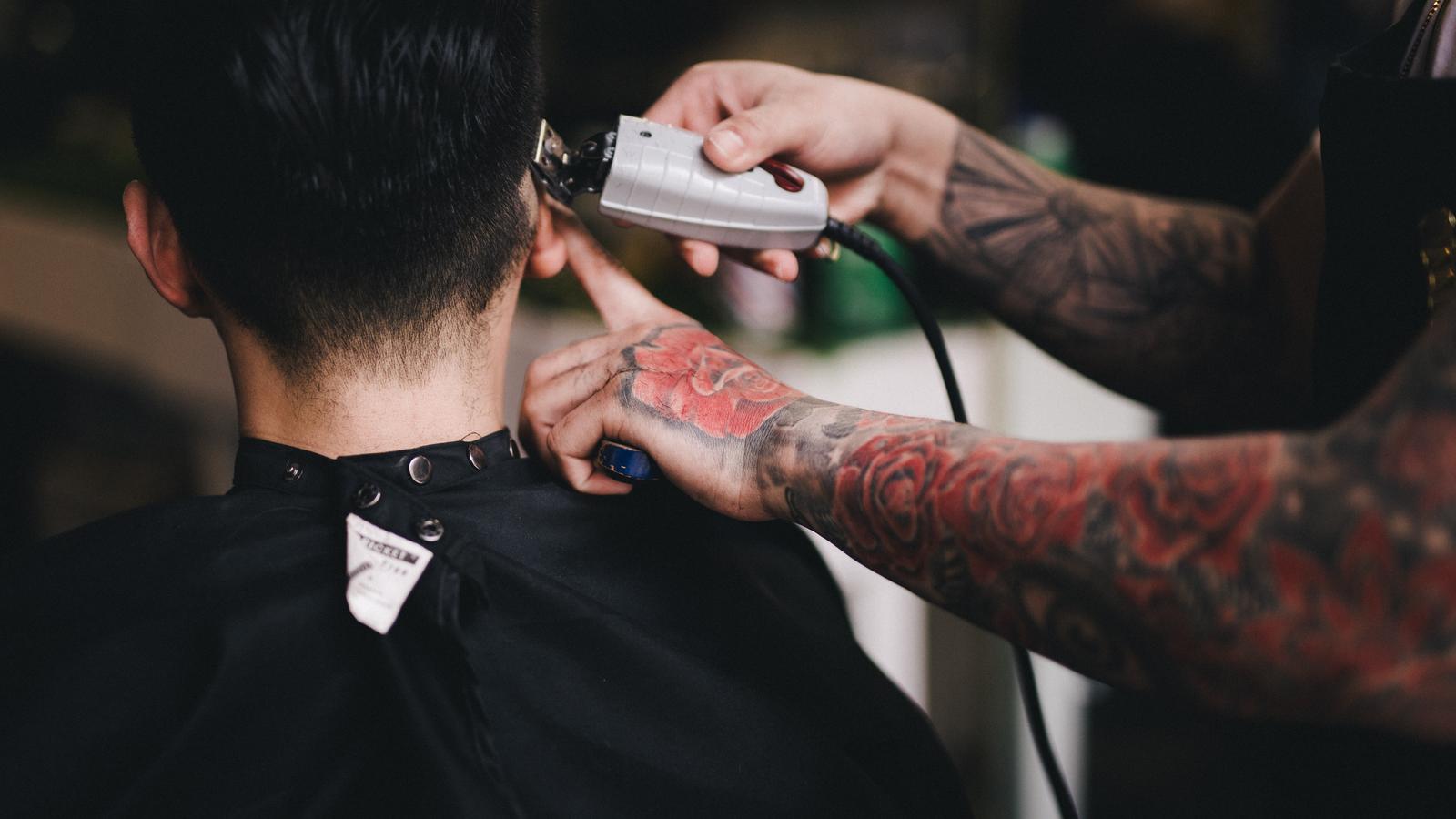
How do I start my own hair salon?
Starting a hair salon is an exciting endeavor, but it requires careful planning and execution. Here’s a breakdown of the key steps to get you started:
-
1. Choose your business model
Decide on the legal structure of your salon. You can opt for a sole proprietorship, partnership, or limited company. Each has its own set of advantages and disadvantages. Consider factors like liability, tax implications, and ownership structure when making your choice.
-
2. Market research
Conduct thorough market research to understand your target audience and competition. Identify your unique selling proposition (USP) to differentiate your salon from the competition. This will help you tailor your services and marketing efforts more effectively.
-
3. Business plan
Create a comprehensive business plan that outlines your salon’s vision, mission, and financial projections. Include marketing strategies, pricing models, and funding requirements. Your business plan will serve as a roadmap for your salon’s growth
-
4. Legal considerations
Ensure you’re in compliance with all legal requirements. If you’re setting up a limited company, you’ll need to register with Companies House. Additionally, research and obtain any necessary licenses or permits specific to your location and services.
-
5. Funding your salon
Determine how you’ll finance your salon. This can involve personal savings, business loans, grants, or a combination of these. Create a detailed budget that accounts for startup costs, including rent, equipment, initial inventory, and working capital.
Is opening a hair salon profitable in the UK?
Owning a hair salon in the UK can be profitable, but success depends on several factors, including location, competition, business strategy, and the ability to meet customer needs.
The demand for hair salon services in the UK remains steady. People continue to seek professional hair care services for various reasons, from routine maintenance to special occasions. The industry benefits from the fact that hair care is an essential part of personal grooming and appearance for many people.
While specific revenue figures can vary widely depending on the salon’s location, size, and reputation, here are some ballpark figures based on available market data:
-
Average revenue: According to industry reports, the average annual revenue for a small to medium-sized hair salon in the UK can range from £50,000 to £100,000 or more. The specific revenue will depend on factors like location, services offered, pricing, and customer retention.
-
Profit margins: Profit margins in the hair salon industry can vary. Some salons may achieve profit margins of 10% to 15%, while others may achieve higher margins through effective cost control and pricing strategies.
The following factors are likely to impact the profitability of your hair salon:
- Location: The location of your salon is a significant factor. Salons in urban areas with high foot traffic and a strong customer base may have higher revenues. Rural areas may have lower revenues but lower overhead costs.
- Pricing strategy: Setting competitive yet profitable prices is crucial. Effective pricing strategies can impact your salon’s profitability. Offering packages, loyalty programs, and special promotions can help attract and retain customers.
- Customer retention: Building a loyal customer base is essential for long-term profitability. Customer retention strategies, such as loyalty programs, excellent service, and consistent quality, can lead to repeat business.
- Marketing and competition: Effective marketing and standing out from the competition are critical. Successful salons often invest in marketing efforts to attract new clients and retain existing ones. Staying up-to-date with industry trends and offering innovative services can set your salon apart.
It’s important to conduct thorough market research specific to your chosen location and target audience. Consider factors like local competition, demographics, and market trends when determining the potential profitability of your salon. Keep in mind that success often depends on factors such as excellent customer service, skilled staff, and effective business management.
While these figures provide a general idea of the profitability of hair salons in the UK, it’s essential to create a detailed business plan and financial projections to understand how your specific salon can achieve profitability in your chosen market. Additionally, speaking with industry experts and existing salon owners can provide valuable insights into the local market conditions and profit potential.
How much money do I need to start a hair salon?
Starting a hair salon requires a well-planned budget to ensure financial stability. Let’s break down the financial aspects:
Startup costs:
- Rent: In the UK, salon rental costs can range widely depending on the location. In urban areas, monthly rent for a small salon space can start at around £1,000 to £3,000 or more.
- Equipment: You’ll need to invest in salon equipment such as styling chairs, hairdryers, mirrors, and workstations. This cost can range from £5,000 to £15,000 or more, depending on the quality and quantity of equipment you need.
- Initial inventory: You’ll need to purchase hair care products, styling tools, and other inventory. Initial inventory costs can vary but may range from £2,000 to £5,000.
- Renovation or decoration: If the salon space requires renovations or decoration, budget for these costs, which can vary widely based on the extent of work needed. This could range from a few thousand pounds to tens of thousands.
Working capital:
- To cover operational expenses in the initial months, you should have working capital on hand. This could range from £10,000 to £20,000 or more, depending on your salon’s size and overhead expenses.
Financial projections:
-
Creating a financial projection for your business plan is essential. You may need to include at least a one-year projection to secure funding or ensure the financial sustainability of your salon. Your projection should consider revenue, expenses, and expected profit. Ensure you have a clear understanding of your expected cash flow.
It’s important to note that these figures are ballpark estimates, and the actual costs can vary based on factors like location, salon size, and the level of luxury and services you aim to provide. To get a more accurate estimate, consider seeking advice from industry professionals and conducting a detailed market analysis specific to your location. Additionally, consulting with existing salon owners in your area can provide valuable insights into the actual costs you may incur when starting your salon.
Do I need a license to open a hair salon in the UK?
Regulations and licenses are essential considerations in the hair salon industry:
Licensing requirements: To operate a hair salon in the UK, you’ll need to comply with licensing and health and safety regulations. These regulations ensure the well-being of your clients and staff. These may include:
- Environmental Health License – ensures salon hygiene and waste disposal compliance.
- Premises license – needed if offering beauty treatments or serving alcohol.
- Cosmetology license: required for individual hairdressers and beauty therapists.
- Treatment licensing- additional licenses for specialised treatments.
- Alcohol license (if applicable) – needed for serving alcohol.
- Employment licenses – compliance with labor laws and health and safety requirements.
- Insurance – Public liability insurance for protection which can protect your business in the event of accidents or injuries on your premises.
NVQ qualifications or other training: Having an NVQ (National Vocational Qualification) is not a legal requirement to operate a hair salon or provide hairdressing, barbering, or beauty therapy services in the UK. However, NVQ qualifications are highly recommended and widely recognised in the industry. These include:
- NVQ in Hairdressing
- NVQ in Barbering
- NVQ in Beauty Therapy
- NVQ in Spa Therapy
What types of hair salon services are popular?
The world of hair services and styles is a dynamic one, constantly influenced by changing trends and individual expressions of beauty. From timeless classics to the latest innovations, hair salons have always been at the forefront of creating looks that reflect the uniqueness of each client. Here are some of the services and styles you’ll want to cater to.
-
![How to start a hair salon]()
Basic services
Traditional haircuts and styling services for routine maintenance and personalised looks. Diverse hair coloring options, from highlights to full color changes, cater to clients seeking trendy and expressive styles.
-
![How to start a hair salon]()
Enhancement services
Add length and volume with extensions, perfect for temporary or dramatic transformations. Smoothen, straighten, and control frizz with keratin treatments for manageable and sleek hair.
-
![How to start a hair salon]()
Special occasion and event services
Elegant updos and intricate styles make weddings and events memorable. Professional blowout services create voluminous and styled hair for special occasions and everyday luxury.
-
![How to start a hair salon]()
Maintenance and health services
Revitalize hair and address scalp concerns with deep conditioning and therapeutic treatments. Perms offer texturized, wavy styles for clients looking to experiment with their hair.
-
![How to start a hair salon]()
Grooming services
Modern grooming services for men, including haircuts, beard care, and grooming products. Fun and kid-friendly haircut services make salon visits enjoyable for young clients and their families.
Choosing the right location
Selecting the right location to open a hair salon is a crucial decision that can impact your success. You’ll want to consider the following:
- Foot traffic: High foot traffic areas attract walk-in clients.
- Accessibility: Ensure easy access via public transport and parking.
- Visibility: Your salon should stand out from the street.
- Demographics: Match the local population with your target market.
- Competition: Assess nearby salons and identify gaps.
- Surrounding businesses: Seek complementary neighboring businesses.
- Cost: Balance rent/mortgage expenses with your budget.
- Space layout: Ensure the space accommodates salon needs.
- Zoning regulations: Verify zoning for salon use and permits.
- Safety and security: Prioritise a safe location.
- Growth potential: Consider future growth and development – a location in an up-and-coming area may provide long-term benefits as the community develops.
To find salon premises and make enquiries, explore various sources such as commercial real estate websites, real estate agents, local newspapers, and classified ads. Networking within the local business community and industry-specific forums can yield leads and recommendations. Additionally, visit your local council’s website for property information. Engage with fellow business owners, attend property auctions, and consider co-working or shared spaces.
When enquiring about premises, ask about terms, property condition, zoning, and renovations, and conduct site visits to assess suitability. Real estate professionals can provide expertise and market insights.
When leasing a salon space, carefully review the lease agreement. Pay attention to lease length, rental terms, and any renovation or decoration permissions. Lease agreements can significantly impact your salon’s financial stability.
Alternatively, running a salon from your home could be a more cost-effective option – although you won’t have the benefit of attracting customers through foot traffic. You may need to obtain the necessary permits and licenses, depending on your location. You’ll want to allocate a dedicated space in your home for your salon, purchase the necessary equipment, and create a comfortable and professional environment for your clients – plus ensure you meet health and safety standards.
Writing a business plan for a hair salon business
Creating a comprehensive business plan is crucial for the success of your hair salon. Your plan should provide a clear roadmap for your business, ensuring you remain focused on your goals and objectives. Here’s what to include in your business plan:
- Summary of your business: Begin with an executive summary that captures the essence of your salon. Highlight your salon’s mission, vision, and values. Explain what makes your salon unique and how it stands out in the market.
- Market analysis: Your business plan should contain a detailed market analysis. Describe your target audience, their demographics, and their preferences. Analyse the competition in your area, identifying strengths and weaknesses. Consider the current and future trends in the hair salon industry to stay ahead of the curve.
- Operational plan: Outline the day-to-day operations of your salon. Detail staffing requirements, working hours, and customer service policies. A well-structured operational plan ensures that you can efficiently manage your salon and meet customer expectations.
- Marketing and promotion: Develop a marketing plan that outlines your strategies for attracting and retaining customers. Consider online and offline marketing channels, including social media, email marketing, and traditional advertising. Define your unique selling points (USPs) and communicate them effectively to your target audience.
- Financial projections: Include financial projections in your business plan. This should encompass income statements, balance sheets, and cash flow forecasts. Projections provide a clear picture of your financial health and help you make informed decisions. Be realistic in your financial estimates, and revise them as needed to adapt to changing circumstances.
- Risk analysis: Identify potential risks and challenges your salon may face. Consider factors like economic fluctuations, changes in consumer preferences, or unexpected events such as a pandemic. Develop contingency plans and risk mitigation strategies to ensure the long-term success of your salon.
Marketing a hair salon business
Marketing your salon effectively is key to attracting and retaining clients. Here are some strategies to promote your hair salon:
- Online presence: Establish a professional website for your salon. Your website should be visually appealing and easy to navigate, providing information about your services, staff, pricing, and contact details. Use search engine optimisation (SEO) techniques to improve your online visibility.
- Local marketing: Optimise your online presence for local search results. Ensure that your salon appears in local directories and on Google Maps. Collaborate with nearby businesses for cross-promotion, such as offering joint promotions or discounts.
- Customer loyalty programs: Implement customer loyalty programs to retain existing clients and encourage repeat business. Offer incentives, discounts, or membership perks for regular customers. A loyal customer base is a valuable asset for your salon.
- Community involvement: Engage with the local community by participating in or sponsoring events, charities, or local activities. Building a positive reputation within your community can help you attract new clients and strengthen client trust in your salon.
- Monitoring and adaptation: Regularly monitor the effectiveness of your marketing efforts. Analyse customer feedback and adapt your strategies based on what works best for your specific salon. This dynamic approach ensures that you continue to meet your clients’ evolving needs.
Share this content

Brought to you by:
AAT Business Finance Basics
AAT Business Finance Basics are a series of online e-learning courses covering the core financial skills every business needs. They draw from AAT’s world-leading qualifications and will quickly build your knowledge on key topics including bookkeeping, budgeting and cash flow.
Visit partner's website













